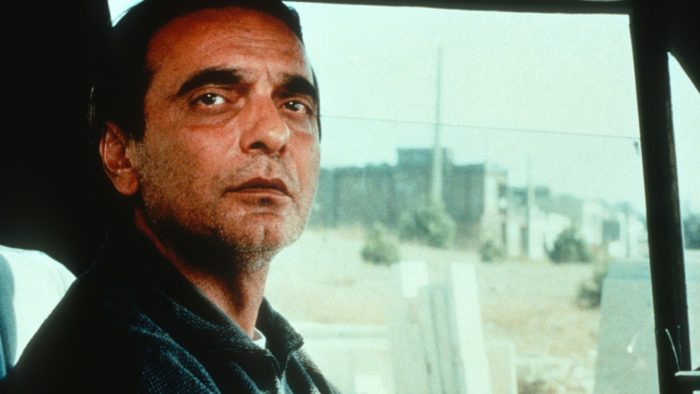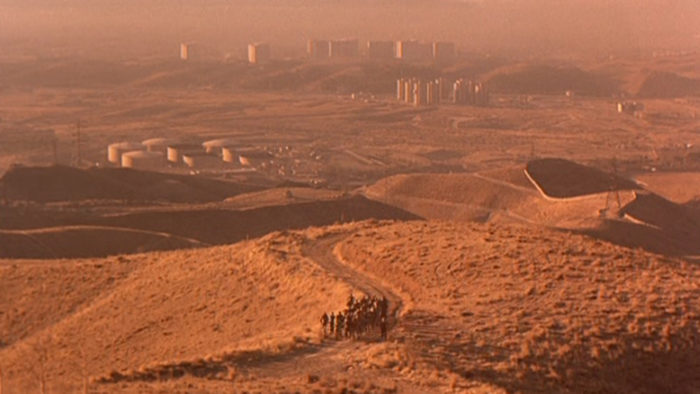
As we come into the home stretch of this year’s Criterion Month, we seem to have found ourselves in a patch of movies about traveling. We had a movie about people puttering about America, then one about traversing France, and now a film about driving around Iran. Taste of Cherry‘s little twist on the minimal road trip formula? It follows a man looking for someone who will burry him after he kills himself.
I selected Abbas Kiarostami’s Taste of Cherry to watch because I knew it was universally beloved, a Palme d’Or winner from the director of the inventive and unpredictable Certified Copy (the only of his works I’d seen, although John reviewed Close-Up exactly a year ago). What I didn’t know at the time was that it actually does have one detractor, the patron saint of Mildly Pleased, Roger Ebert, who called it one of his most hated films. This really, really threw me when I started writing this review and checked Wikipedia. I had already decided I liked the film, so finding the “reception” section dominated by my favorite critic calling it boring was alarming.
Taste of Cherry isn’t boring. It could have been, perhaps even should have been, but the stakes are high enough and the filmmaking smart enough that I had no trouble getting through these 95 minutes. I wasn’t exactly riveted, this is truly a movie about a guy driving around, but I’m just not sure why Ebert had such a profoundly negative experience. I’d go as far as to say I found this portrayal of late-Nineties Tehran a fascinating vehicle for a meditation of the meaning of life.
I should say, the man driving the car is Mr. Badii (Homayoun Ershadi), who from the start has already decided he wants to die, gotten the sleeping pills to overdose on, and dug out the spot that would be his grave. Badii just needs someone to check that he’s dead in the morning, and, if he is, bury him. For that he’s willing to offer a large amount of money. As he travels the outskirts of the city, Badii interviews two young men, a solider and a seminarist, both of whom reject him. He then picks up an older man, a taxidermist, who turns the tables and preaches at Badii during his trip in the passenger seat.
There’s obvious symbolism to the three men Badii considers, I figured this out and Ebert should have too. The young soldier reminds him of the happiest time in his life, the seminarist begs him not to kill himself because god wouldn’t like it, and the taxidermist advocates for the simple joys of life that come from nature. So the aspects of the story that we’re not told, like why Badii wants to kill himself, don’t really matter so much, do they? It’s implicit, but pretty obvious, that Badii, while sincerely in his intent to die, is looking for someone who can give him a reason to live. Knowing how and why Badii reached this point would make this story about that single aspect, instead of what it is: a love letter to life.
How this story is told matters too, and for much of Taste of Cherry, I was taken by the imagery of this landscape. Badii ends up driving around a winding, messy dirt road through an area where men are refining concrete (or whatever, I don’t know), it’s as if the film is taunting this man who is having so much trouble trying to get buried by showing countless tons of earth being tossed around. Then, at the end of the movie, there’s a truly bizarre coda, a bit of visual storytelling the meaning of which is lost on me. In this much-discussed last bit, what stood out to me was how what appeared so dusty before was now covered in grass. Anyway, it’s weird, but I’m OK with that, and you should have been too, Roger. You helped me, more than anyone, get to this point.


